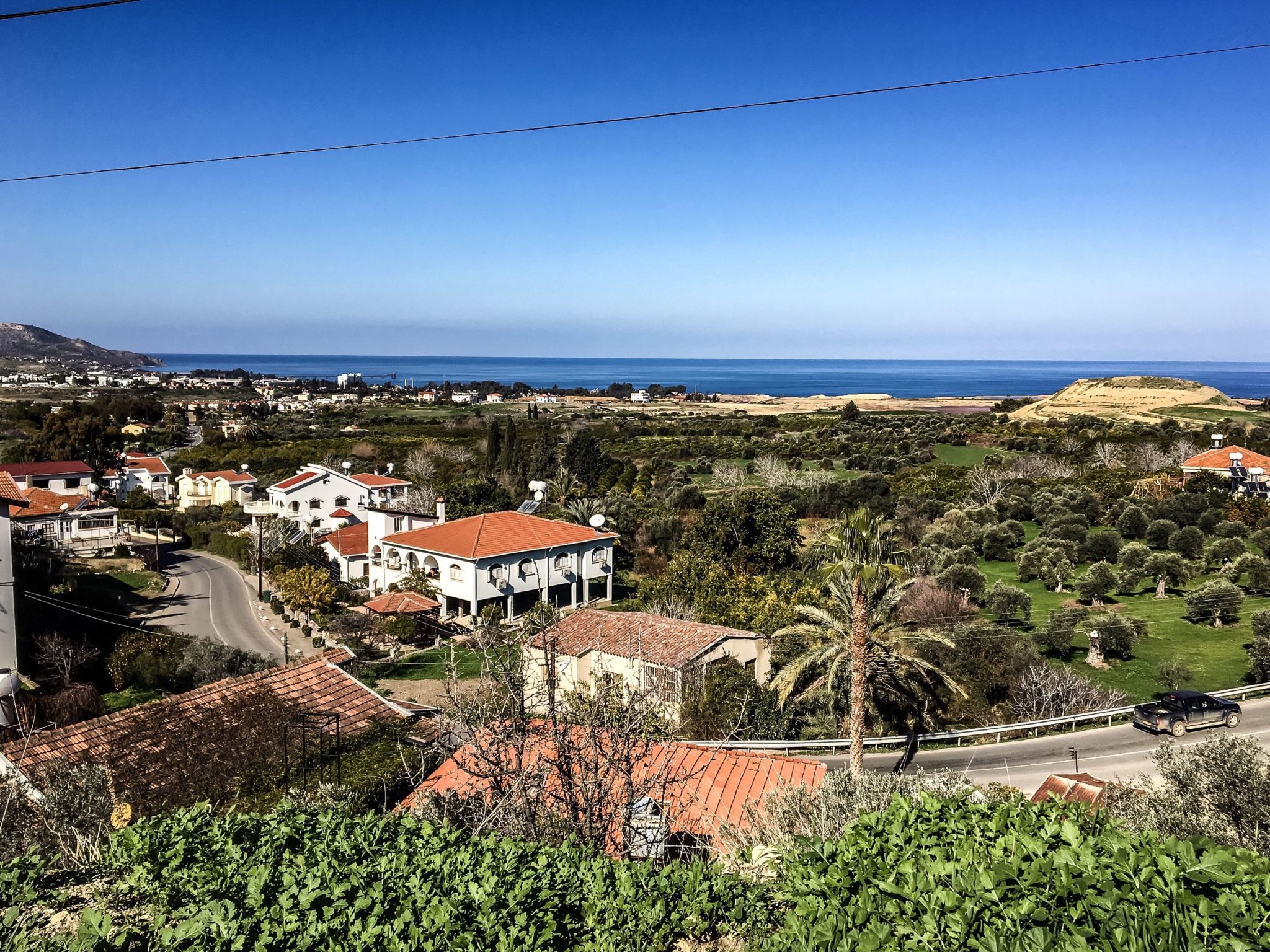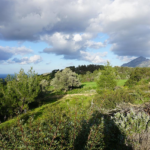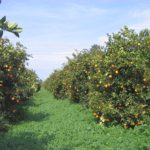The town of Lefke, located inland just to the south of Güzelyurt, has a bright past and was one of the few towns to have seemingly been valued enough during Ottoman times to have warranted investment and infrastructure development.
The area around Lefke is a mixture of coastline and low-lying mountains which form part of the Troodos range. The land of the region is very fertile with natural watercourses effectively feeding it, and Lefke is famous for its ‘Yafa’ oranges as well as dates, plums and walnuts. In its more recent history, Lefke was also part of the copper mining operation area with land being leased to the Cyprus Mining Corporation (CMC); the nearby port of Gemikonagi was used for transportation.
 Even though mining stopped in 1974, the legacy of CMC still remains to this day. The area where mining was intense is now an environmental disaster zone, with copper slag deposits being left to sink into the waters of the Mediterranean. There are also abandoned and derelict storage warehouses and machinery which leave a depressing scar on the landscape to this day. Efforts are being made to force CMC to clear up and contain this damage, but as yet nothing has convinced them to do so.
Even though mining stopped in 1974, the legacy of CMC still remains to this day. The area where mining was intense is now an environmental disaster zone, with copper slag deposits being left to sink into the waters of the Mediterranean. There are also abandoned and derelict storage warehouses and machinery which leave a depressing scar on the landscape to this day. Efforts are being made to force CMC to clear up and contain this damage, but as yet nothing has convinced them to do so.
Lefke and the surrounds of Gaziveren have a fantastic if turbulent history, and you can still see some great examples of Ottoman houses and mosques around the town. Gaziveren was the scene of bloody conflict in 1964 when Turkish residents held off Greek troops, far superior to themselves, until Turkey managed to negotiate a cease fire.
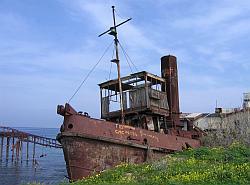
Lefke’s main attraction is Soli, an historic site of huge proportions that has still not been completely excavated. It is believed that this once great city would have been founded in around 600BC by Demophon, a son of Theseus, with King Philokypros moving his capital to this site. Solon, a celebrated Athenian philosopher, advised the King to make this move and was rewarded by having the City named in his honour.
Soli changed hands in 498BC when the Persians arrived in Cyprus, but the city did not suffer at the time of the power transfer, and in fact remained a very prosperous city. However, in the 7th century when Arab raiders took over, it was pillaged and destroyed. In the 1930’s part of the site was excavated by a team of Swedish architects, and they revealed such treasures as the Roman Theatre.
A few kilometres away on the coast road you can also find the ruins of Vouni, a once opulent and extravagant palace probably built in the 5th century BC during the Persian period. Here there have been many discoveries of bronze statues, sculptures, gold coins and jewellery, and the site is well worth a visit if only to see the stunning 360 degree views from its elevated position.
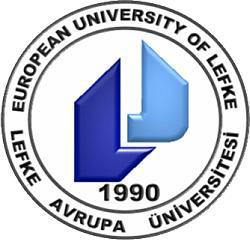 Lefke is now home to the celebrated European University of Lefke, opening in 1990 as the University of Lefke, and which is now recognised by the Council of Higher Education in Turkey and the European Union. It has grown into a large complex offering undergraduate and postgraduate degree programmes, and it has benefited from the construction of additional buildings and facilities in recent years to reflect its achievements.
Lefke is now home to the celebrated European University of Lefke, opening in 1990 as the University of Lefke, and which is now recognised by the Council of Higher Education in Turkey and the European Union. It has grown into a large complex offering undergraduate and postgraduate degree programmes, and it has benefited from the construction of additional buildings and facilities in recent years to reflect its achievements.
Lefke is full of history and has a vibrant future. Both of these attributes make this town a wonderful place to visit, and we would advise you to take the time out to do so!

